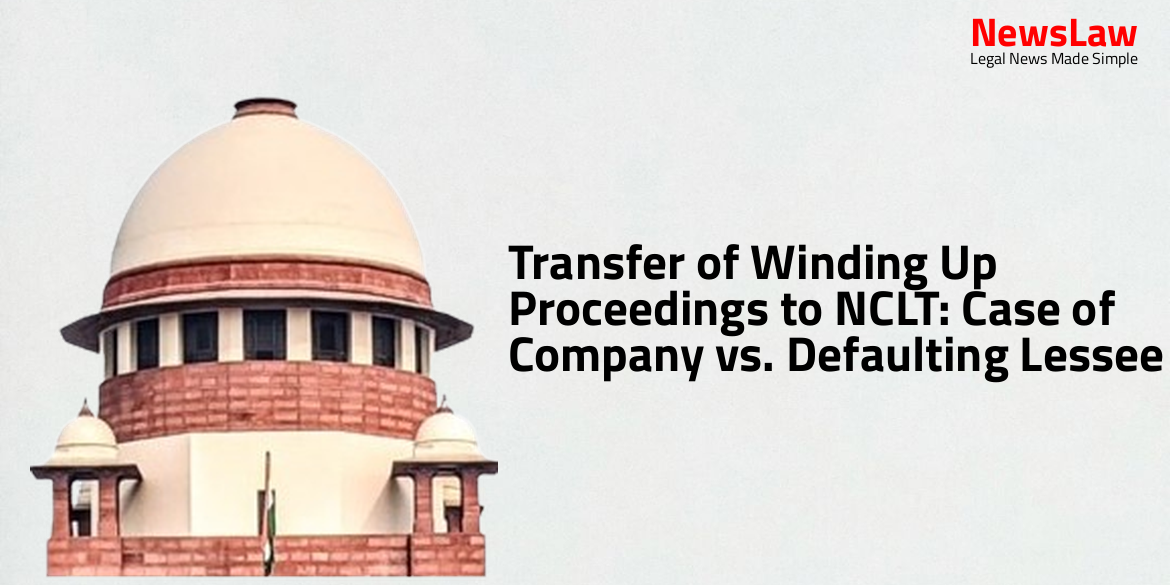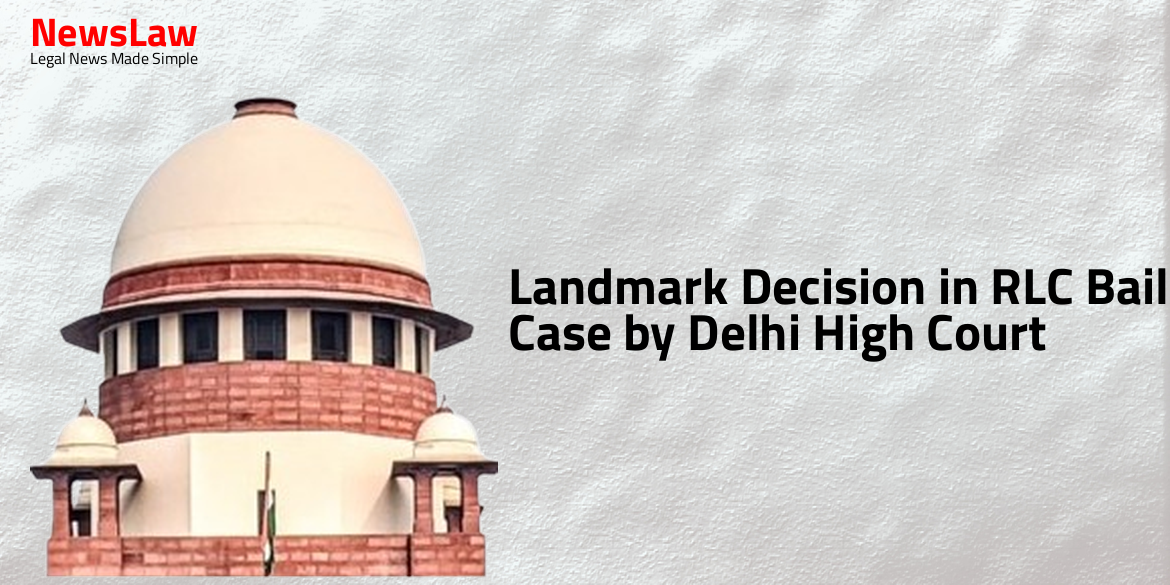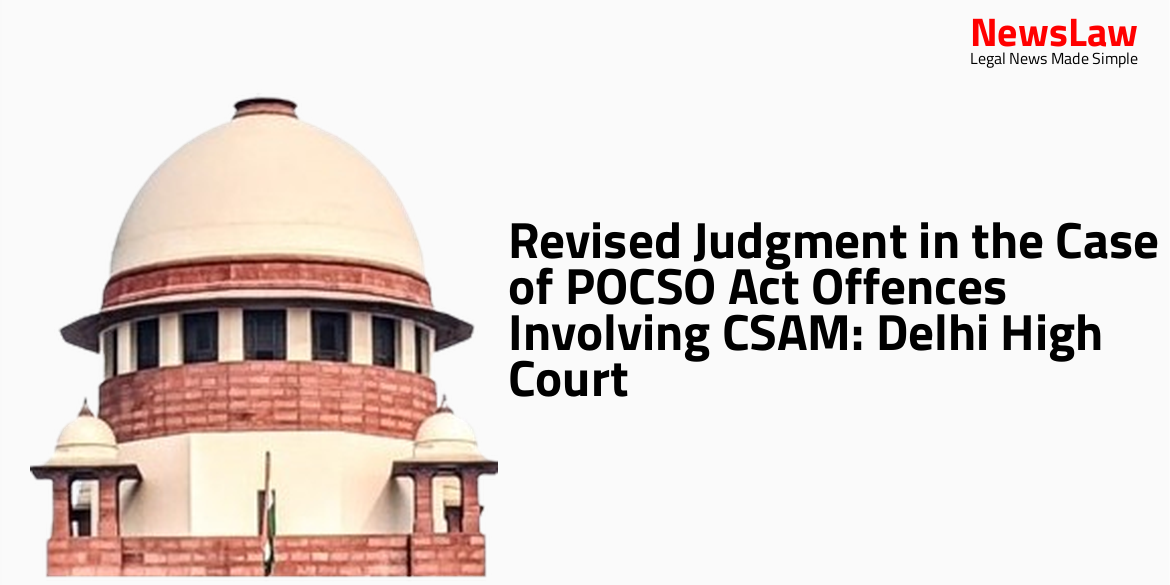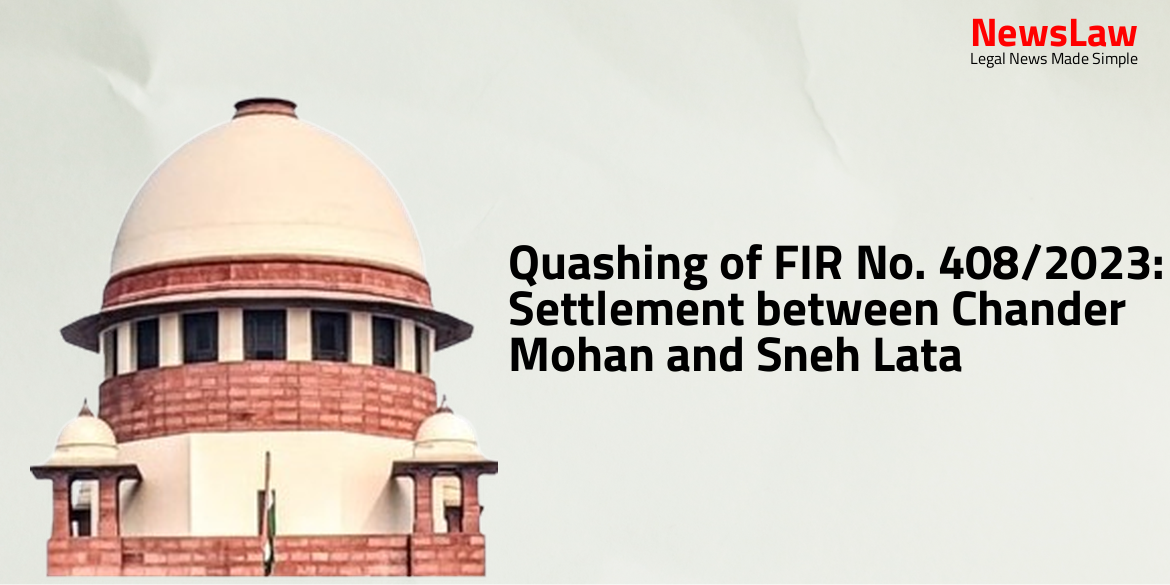In a recent judgement by the Delhi High Court, the case of Company vs. Defaulting Lessee saw the transfer of winding up proceedings to the National Company Law Tribunal. The decision marks a crucial development in insolvency and bankruptcy proceedings, highlighting the need for legal clarity in such cases. Let’s delve into the details of this significant legal precedent.
Facts
- Petitioner served legal notice on 08.03.2015 due to non-payment of rent.
- Proceedings initiated under Section 138 of Negotiable Instruments Act.
- Rent Petition No. 1216/2014 filed under Section 13 of Punjab Rent Control Act.
- Respondent directed to handover possession of property.
- Statutory winding-up notice served on 18.11.2015 for Rs. 1,99,70,730/- with interest.
- No reply or payment made by respondent.
- Lease deed dated 01.06.2012 for a 9-year term with monthly rent of Rs. 9,25,000/-.
- Respondent a serial defaulter with dishonored cheques and breach of lease terms.
Analysis
- The present petition is deemed inappropriate to continue before the Court and should be transferred to the National Company Law Tribunal due to the enactment of the Insolvency and Bankruptcy Code, 2016, and the Companies Act, 2013 during the proceedings.
- Consideration of Section 434 of the Companies Act, 2013 is necessary for the transfer of winding up proceedings to the NCLT.
- The present company petition lacks progress as neither a Provisional Liquidator nor an Official Liquidator has been appointed.
- The decision in Action Ispat and Power Private Limited v. Shyam Metalics and Energy Limited supports the transfer of winding up proceedings to the NCLT if not in an advanced stage.
- Winding up proceedings at a preadmission stage without service of the petition are transferable to the NCLT for resolution under the Insolvency and Bankruptcy Code.
- A Company Court must only continue winding up proceedings if irreversible steps have been taken, necessitating the need to proceed with the winding up instead of transferring it to the NCLT.
- Proceedings of voluntary winding up must be dealt with according to the Companies Act, 1956 and the Companies (Court) Rules, 1959 if notice of resolution was given before April 1, 2017.
- After admission of a winding up petition and takeover of the company’s assets by the Company Liquidator, section 290 of the Companies Act, 2013 allows the Company Liquidator to conduct the company’s business and sell it as a going concern for the beneficial winding up of the company.
- The stage at which winding up proceedings should be transferred to the NCLT depends on the facts and circumstances of each case.
- In the Citicorp International Limited v. Shiv Vani Oil & Gas Exploration Services Limited case, it was held that winding up proceedings in High Courts, which have not progressed to an advanced stage, should be transferred to the NCLT.
Decision
- The matter is transferred to the NCLT for further consideration and appropriate orders.
- The NCLT is directed to list the case on 08.07.2024.
- The present company petition and any pending applications are disposed of accordingly.
- The electronic record of the petition will be transmitted to the NCLT by the Registry within one week.
Case Title: ATAMJIT SINGH & ORS. Vs. SPORTS FIT WORLD PVT. LTD. (2024:DHC:3635)
Case Number: CO.PET.-48/2016



